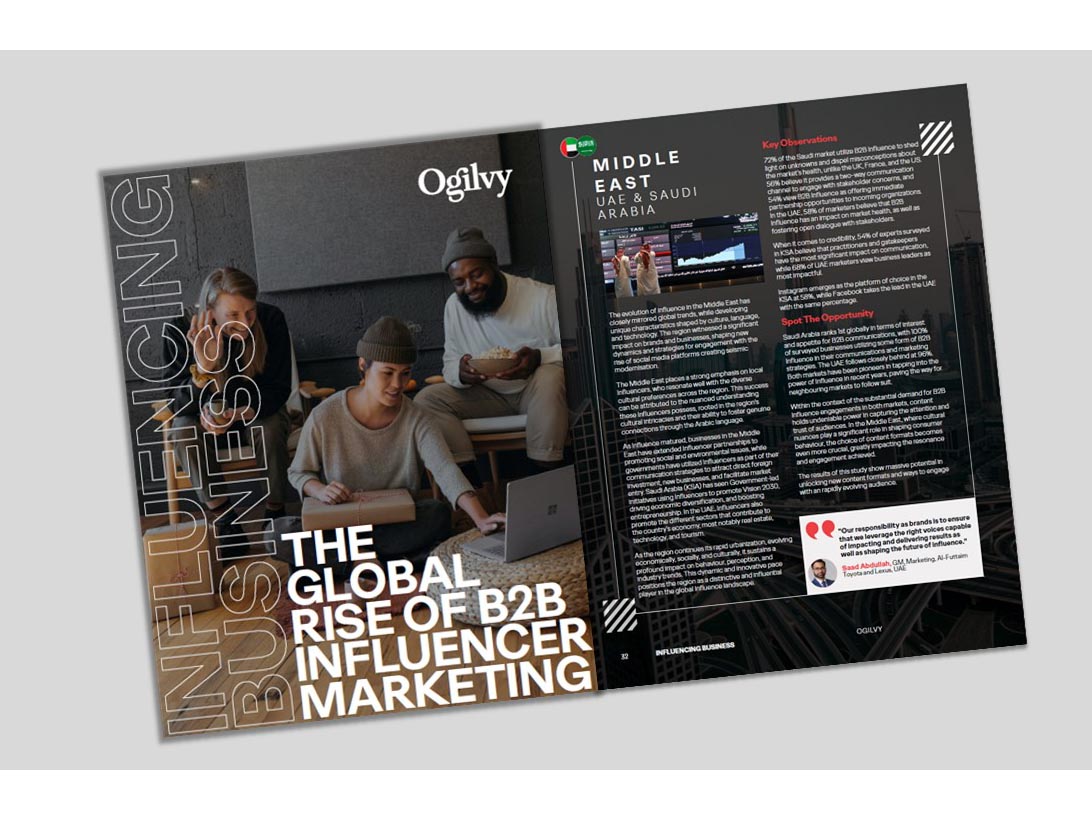Industry Talk - Free Talk
Educate, Don’t Sell: The B2B Thought Leadership Advantage
by Hedaa Ashraf Ismail, Al Masaood Group
November 18, 2024
.jpg) Advertisement
AdvertisementIn the world of B2B, the rules of engagement have changed. Clients today aren’t just looking for suppliers; they’re looking for knowledge, perspective, and partners who understand their industry inside and out. When a company positions itself as a trusted voice, offering insights, tackling tough questions, and leading conversations on industry challenges, it stands out in a way that advertising alone can’t achieve. This shift from pure selling to becoming an advisor is where the true B2B impact begins.
Why Thought Leadership Matters in B2B
B2B purchases are often complex and require significant commitment, involving multiple decision-makers and large investments. Buyers are looking for more than just vendors; they want partners who understand the industry’s challenges and can provide insights and guidance. By focusing on thought leadership, companies can present themselves as credible sources of industry knowledge, aligning closely with their clients’ needs and concerns.
For instance, companies might create content focused on pressing industry challenges like sustainability in manufacturing or energy efficiency in data centers; not to promote a product but to educate and provide valuable insights. This approach shows clients that they’re working with a company invested in their long-term success, not just in making a sale.
Building Credibility and Trust
Establishing thought leadership requires consistent, valuable contributions to the industry conversation. Companies that share educational content regularly become trusted resources, solidifying their roles as reliable partners when clients need insights or advice.
Additionally, engaging with teams who interact directly with clients such as sales, customer service, or technical experts can provide perspectives that pure data may miss. These insights into client challenges, motivations, and expectations add depth to thought leadership content, helping companies create materials that are not just informative but truly relevant and helpful. When content reflects real-world needs, it goes beyond promotion, serving instead as a means of genuine support and connection with the audience.
Thought Leadership as a Dialogue, not a Broadcast
Thought leadership in B2B is not just about pushing out content; it’s about engaging the audience in a meaningful way. A two-way approach could involve hosting webinars, participating in industry panels, or conducting surveys to be informed about evolving client needs. By creating platforms for interaction, companies can gather valuable feedback that shapes future content and strategies.
This dialogic approach is particularly effective in industries with complex solutions and high-stake purchasing decisions, where clients appreciate opportunities to engage with experts and exchange knowledge. Companies that actively facilitate these conversations not only support their positions as industry leaders but also gain fresh insights that inform their own development.
Thought Leadership as a Long-Term Strategy
Thought leadership is a long-term investment in trust and credibility rather than an immediate ROI strategy. Over time, companies that are committed to providing valuable insights often become go-to resources, attracting inbound leads, entering new markets, and retaining clients. Prospective clients often look to companies with strong reputations for knowledge and authority when they are ready to make significant investments.
In practice, a sustained thought leadership strategy can deliver considerable results. Consistent knowledge-sharing positions a company as a reliable partner, making it easier to build relationships and generate business. This type of strategy, which focuses on delivering long-term value to the audience, becomes invaluable as clients increasingly rely on trusted sources for guidance in a competitive marketplace.
For any B2B organization looking to stand out, thought leadership is more than a tactic; it’s a critical component of building a trusted brand. By focusing on education over promotion, companies can foster lasting client relationships and position themselves as indispensable industry partners.
The journey toward becoming a thought leader in B2B may look different depending on the industry, but the core principles remain the same: truly understanding the audience, delivering consistent and valuable insights, and using a combination of digital and offline strategies to create a comprehensive brand presence. In a world where informed, engaged clients are the most loyal, thought leadership isn’t just good marketing, it’s an essential approach for sustainable success in B2B.



.jpg)










